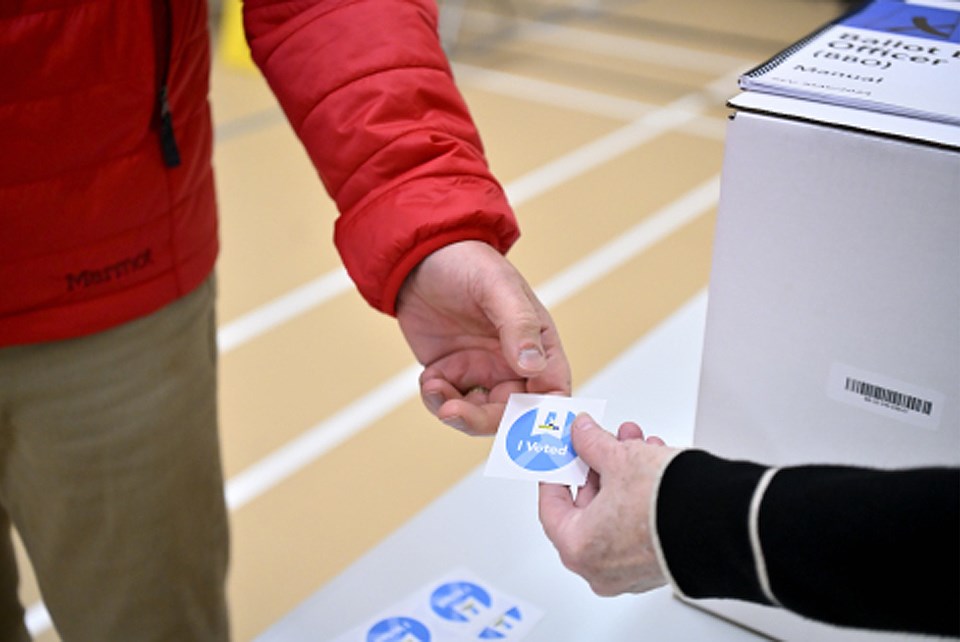Entering this year's provincial election, everyone knew the results were going to be a lot closer than those of its predecessors. It was just a matter of how close.
The Saskatchewan Party wasn't going to garner 60 per cent of the popular vote, and it wasn't going to finish with 50-ish seats again. The New Democratic Party was going to have its highest number of seats since the 2003 election, when they won 30 and formed government for the last time.
Would the NDP pick up enough seats to regain power and end the Saskatchewan Party's 17-year reign? As it turns out, no.
The Saskatchewan Party was re-elected to a fifth consecutive majority government, tying a record in Saskatchewan set by the NDP from 1944 to 1964. But the Sask. Party is down to 35 seats as opposed to a much higher number we've seen in recent years, which will be a disappointing number for the party.
Here in Estevan-Big Muddy, Lori Carr was returned for a third term as our MLA. Not a surprise. This riding has been a Sask. Party stronghold since 1999.
Perhaps the biggest surprise is Phil Zajac, the leader of the Buffalo Party who ran in this riding, didn't get a larger share of the popular vote. He scooped up 740 votes this time, well below the number of four years ago.
The Buffalo Party and the Saskatchewan United Party were both shut out across the province, and you have to wonder if concerns about a vote split hindered their support. It might have caused some people to vote Sask. Party.
Or perhaps some of the Sask. Party's policies helped them take support from the Buffalo Party and the SUP, even if those policies hurt them in Regina and Saskatoon.
You can expect to hear a lot of talk about rural-urban vote splits in the wake of the election. The NDP swept Regina's 12 ridings and took 12 of 14 Saskatoon seats. Most of the victories weren't close.
Pundits expected the NDP to win the bulk of the big-city seats; few would have expected 24 of 26 seats. The NDP's two other seats came in northern Saskatchewan.
The Saskatchewan Party swept Moose Jaw, Prince Albert and the 29 seats in rural and small-city Saskatchewan.
The NDP has to be patient if it hopes to regain its support in rural Saskatchewan. Carla Beck has done a good job of reaching out to the non-city ridings since she became leader in June 2022; it's going to take years of work before it starts winning in those ridings again. And it might not be able to regain power without rural Saskatchewan.
This isn't Manitoba. The majority of Saskatchewan's seats aren't in one community.
One of the challenges facing the Sask. Party is the lack of representation in Regina. A good cabinet in Saskatchewan will have male and female ministers from the big cities, small cities and rural areas. But cabinet, and the government's caucus, won't have representation from the Regina, which is crazy when you really think about it.
There's one lingering question for me about election night: was this the NDP's best opportunity to regain power? You know the Sask. Party will have a renewed focus on the big cities after Monday night's results. The NDP can't expect to go 24-of-26 in the big cities again. But they have no track record to think they can win in rural Saskatchewan in 2028, even if they're doing a better job of focusing on those ridings.
While the NDP should be pleased with the results of Monday night, its representation is still limited to Regina, Saskatoon and the far north. Which is the same as they had in the disastrous 2011 election. Of course, they have a lot more seats in Regina and Saskatoon than they did in 2011.
One other discussion needs to emerge from election night: modernizing the ballot-counting process. In Estevan, we've had electronic polling for municipal votes since the 2014 civic by-election. It works great. We know the election results within an hour of the polling stations closing. And it makes life easier on election workers who previously had to work past midnight to tabulate the results.
The provincial election night this year was frustrating. It took nearly 90 minutes for the initial results to come in from Saskatoon and Regina. Many constituencies in the big cities, as well as other ridings, didn't come in until nearly 10 p.m. And the first polls for Yorkton weren't reported until closer to 10:30 p.m.
Electronic polling stations are expensive. And with 61 constituencies and numerous stations in each riding, it would likely be cost-prohibitive to have all of them in place in time for 2028. But a pilot project for some of these ridings might be worth investigating.
It was an interesting election, the most suspenseful one since 2003. Now that the election is over, the intrigue of the next four years in the Saskatchewan Legislature begins.


